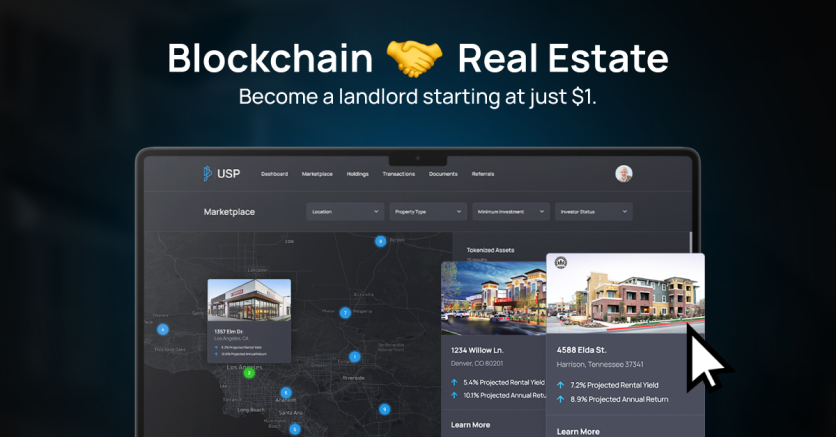
The burgeoning field of real estate tokenization represents a significant shift in property investments. Spearheaded by USP, this innovative process uses blockchain technology to democratize access to real estate investment, which was historically the domain of affluent and institutional investors. Despite its early stages, large financial institutions like BlackRock, JP Morgan, and Goldman Sachs are heavily investing in tokenization, indicating its potential to transform the market.
Early Adoption by Major Institutions
The interest from these giants represents a critical turning point in investment strategies, reflecting confidence in tokenization's future. However, considerable hesitance remains among the broader crypto and web3 communities. This reluctance is based on the perception that these innovations are too aligned with traditional finance (tradfi) rather than the decentralized ethos of defi (decentralized finance).
USP's Role in Pioneering Change
USP is confronting and conquering these challenges by tokenizing $52 million worth of Southern California real estate and also planning a dedicated marketplace for these tokens. This marketplace, to be funded through a Regulation CF campaign on Republic, aims to simplify the investment process, making it accessible to a wider range of investors. This includes both U.S. accredited and retail investors. The USP Token represents more than just a share in real estate. It's a stake in the future of equitable wealth distribution.
The company's approach integrates stringent KYC and AML protocols to ensure security and compliance, addressing common concerns about the safety and legality of blockchain-based investments. Additionally, despite its current listing on only minor T3 exchanges, USP's leadership under Johnney Zhang ensures that all tokenized properties are managed with the highest degree of professionalism and integrity.
Market Sentiment and Educational Challenges
The skepticism surrounding real estate tokenization is largely due to its novelty and complexity. The majority of today's crypto investors are accustomed to the high volatility and quick returns of digital currencies and may find the concept of blockchain-based real estate investment cumbersome or unattractive. However, similar to the early days of Bitcoin, USP's tokens are misunderstood yet full of potential. Like Bitcoin, which once faced significant skepticism but eventually became a cornerstone of digital assets, real estate tokenization by USP is poised for long-term success and substantial growth.
Looking Ahead: The Future of Real Estate Tokenization
The future plans for USP include expanding partnerships with larger exchanges to enhance liquidity and foster broader market acceptance. As the regulatory environment evolves and becomes more accommodating to security tokens, major exchanges will likely recognize the necessity and demand for listing such assets.
Real estate tokenization holds the promise of disrupting traditional investment models by making real estate ownership more accessible and equitable. This is not merely a trend but a foundational shift in how property investment will be conducted in the future. USP, akin to the early Bitcoin, may currently be a niche player in a vast financial ecosystem, but it is setting the stage for what could become the norm in wealth distribution and investment strategies.
Ultimately, real estate tokenization is poised to redefine investment models, offering a bridge between the established value of real estate and the innovative potential of blockchain technology. With its visionary approach, USP is setting the stage for a future where real estate investment is accessible, equitable, and integrated with the digital economy.
ⓒ 2025 TECHTIMES.com All rights reserved. Do not reproduce without permission.




